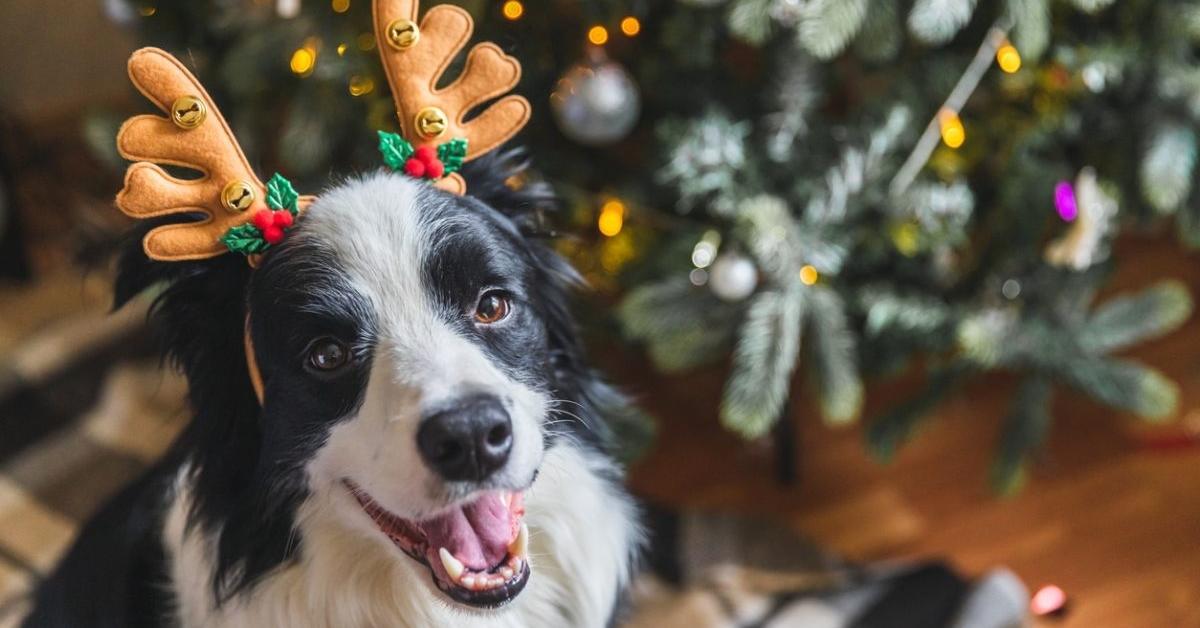Hannukah, Christmas, or Kwanza—it doesn’t matter what you celebrate during the winter holidays, food takes a front seat. For most of us, the festivities are an excuse to eat amazing food with the ones you love, and your family’s dog naturally makes it on the guestlist. Although they may not have a chair at the table, they will be around for every celebration you host at home.
It makes sense you want to share the festivities with your beloved pet, but you should draw the line with sharing your plate. Many of your favourite seasonal goodies are toxic to your four-legged friend. If they get into things they shouldn’t, you could spend the holidays in an urgent care vet clinic.
What Foods Are Toxic to Dogs?
From chocolate gelt to garlic mashed potatoes, many popular treats and dishes that make an appearance on your holiday plate are toxic. Some (but not all) of the biggest holiday no-nos for your dog include the following ingredients:
- Alcohol
- Artificial sweeteners: xylitol (found in many peanut butters and low-sugar snacks) is particularly harmful to dogs.
- Chocolate
- Dairy: specifically blue cheese, Roquefort, cheese balls encrusted with nuts and herbs, and flavoured cheeses.
- Fruit: grapes and raisins, avocado, tomatoes, and cherries.
- Nuts: almonds, Brazil nuts, cashews macadamia nuts, pistachios, and walnuts.
- Veggies: chives, garlic, leeks, onions, shallots, scallions, wild mushrooms.
What if They Manage to Sneak Holiday Goodies?
Sadly, your dog doesn’t know they shouldn’t eat off your plate. All they know is that your food smells appetizing. If they get into any of the items above, it’s best to check with your vet right away—even if it’s in the middle of the night.
While not all of the items on this list are a death sentence, they can cause significant health issues for your pet. Getting an expert’s opinion can help your dog recover faster.
Having a pet emergency fund can help with these unexpected midnight vet trips, and your credit cards can usually fill in the gaps. But the holidays are a busy time for your budget, so don’t panic if you don’t have as much savings or room on your cards as you need.
You can also consider taking out an emergency line of credit to ensure your dog gets the care they need. Of course, a line of credit is just one of the many personal loans available in an emergency. You should learn about the various options offered online to make sure you know what you’re getting into. Borrowing the loan or line of credit that suits your lifestyle best makes it easier to cover its repayments.
How to Avoid a Vet Emergency This Winter
You can avoid the mental toll and financial cost of an urgent vet visit by being careful in the kitchen this year.
- Memorize this list of ingredients your dog cannot eat.
- Never leave unattended food on counters, tables, or other low surfaces.
- Clean counters and other surfaces to wash away crumbs and residue.
- Store toxic ingredients in locked cupboards or upper cupboards out of their reach.
- Likewise, keep garbage bins away from their curious snouts.
- Distract them during food prep (e.g., have someone walk with them or play with them in another room).
- Take time to improve their training, making sure they understand “no” and “off” in case they find something.
The dog-proofing tips above will thwart even the hungriest Lab from sampling something they shouldn’t. This way, you can enjoy the holidays with man’s best friend without worrying about their health or your budget.
